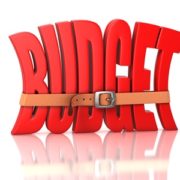Getting your Personal Finances under Control
 “Annual income £20, annual expenditure £19/19/6; result happiness
“Annual income £20, annual expenditure £19/19/6; result happiness
Annual income £20, annual expenditure £20/0/6; result misery”
Charles Dickens – David Copperfield
Australians are typically very good at spending money. Give me $1.00 and I will spend $1.10, thanks to easy access to credit (often in the form of a credit card).
But there comes a time when the need to exercise some personal financial constraint becomes necessary. This may arise as a result of the loss of a job, reduction in income, starting a family, or getting a mortgage and educating children. For some, the need to get our personal finances under control is simply because we have let our debt get out of control.
Being out of control of our personal finances can often lead to depression, fear, anger and more often that not, we just might not be a nice person to be around.
However, there is hope. We can get off the debt ridden treadmill and get our financial lives in order. The difficult question is HOW?
An old lesson
Back in 1926, American publisher George S. Glasson published the first in a series of articles on achieving financial prosperity. These articles culminated in publication of his famous book, ’The Richest Man in Babylon’. The book is still readily available today both in print and electronic format. It is easy to read and is still as relevant today as it was when it was first published in the early 20th Century.
The seven key messages:
Pay yourself first – set aside part of every dollar you earn. Ideally you should look to save 10% of everything you earn. This money is not being saved to buy a new car, have a holiday, or even buy a house. It is being put away for the long term and will be used to provide an income when we are no longer able to work. For some, making additional contributions to superannuation may be an ideal way of saving the extra 10%. If you can’t afford to save 10%, then start by saving some small part of your income and gradually increase it. Ideally we should be aiming to live off 90% or less of our income. This may take a little time to achieve.
Manage expenses – we all have expenses that need to be met in order to live, including food, housing, clothing and transport. But many of us spend unnecessarily on “other stuff”. This is what we call discretionary spending and it often consumes most, if not all, of our surplus income. Start by setting a budget of known fixed costs, and then allow for some discretionary spending. Look back over past bills and identify your fixed expenses. Bills for fixed expenses often arrive at irregular intervals. A phone bill might arrive once each month or once each quarter, but you might be paid weekly or fortnightly. Expenses should be totaled for a full year, and then divided by the number of pay days to work out how much needs to be set aside out of each pay to cover bills as they arise.
Grow your wealth – now that you have started saving a part of every dollar you earn, you should look to having it grow in value. The investment earnings achieved should be added to your growing pool of savings.
Protect your capital – in order to protect our savings from loss, care must be exercised to ensure the security of our principal. Before investing, understand the associated risks and, if the risk is unacceptable, look for a more suitable alternative. Take advice from a suitably qualified expert. There are many good investment savings plans that allow small amounts to be saved on a regular basis while providing access to a wide range of investment options including fixed income, shares, property and overseas investments.
Invest in your home – owning your own home provides security for you and your family and home ownership is the aspiration of most Australians. Home ownership also delivers favourable tax concessions in that any gain we achieve on the sale of our home is generally exempt from tax. It therefore makes sense to maintain and improve our home, within reason and without overcapitalising, to ensure we maximise the price we can achieve when we eventually sell.
Protect yourself and your assets – we all understand how important it is to insure our possessions, be it our home and its contents, our car and the like. But how many of have adequate insurance on our life and our ability to earn? We should seek the advice of a qualified professional adviser to ensure that we are adequately insured against events that might rob us of our life, or our ability to earn. Yes, you can insure your future income.
Invest in yourself – one way of building wealth is to increase our capacity to earn. To achieve this is to be willing, irrespective of our age, to increase our knowledge and skills through continuing education and training. Many people expect their employer to provide additional training. However we should take personal responsibility for increasing our knowledge and experience by investing our time and money in undertaking suitable training that enhances our opportunity to increase our earnings over time.
Taking control of our financial future takes time and discipline. It will involve making some hard decisions but if we make a plan and stick to it, over time it will become a habit and will deliver financial security and prosperity.
For many people, having a coach or a guide to whom we are accountable will keep us on track and provide the impetus to keep going, even when times are tough. A financial planner can fulfil this role so if you need any help with making a plan for your future, contact us today and we can .
Source: Peter Kelly, Centrepoint Alliance








